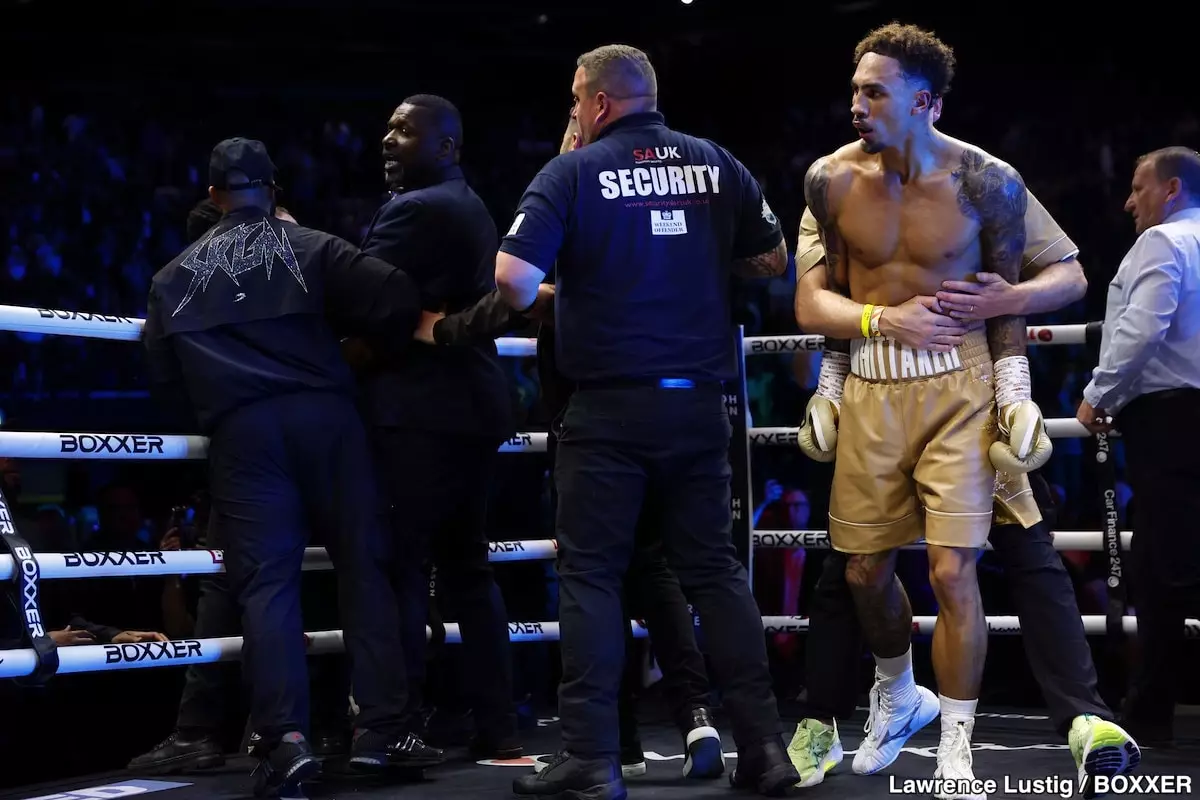Liam Cameron, with a record of 23 wins and 7 losses, faced Ben Whittaker, an undefeated boxer with a 9-0-1 record, in a much-anticipated rematch at the Resorts World Arena in Birmingham. Despite the dramatic nature of the fight and the contentious stoppage by referee Howard Foster, Cameron’s reaction post-fight showcased a character that many would admire: resilience. Rather than dwelling on the disappointment, he displayed an upbeat demeanor, advocating a philosophy of acceptance in a sport notorious for its brutality. This mindset itself requires a level of maturity that is frequently absent in the heated atmosphere of professional boxing.
Cameron’s ability to separate his emotional response from the practicalities of his situation is commendable. He mentioned looking forward to using the earnings from the fight to invest in a house, thus highlighting a pragmatic approach to his career. Rather than portraying bitterness toward a decision that many spectators deemed premature, Cameron’s perspective invites a deeper contemplation of what it means to be both a fighter in the ring and a person outside of it. This duality is crucial for anyone involved in performance sports, illustrating that one’s identity transcends the immediate results.
Controversy Surrounds the Ring
Fans expressed their dissatisfaction with the referee’s intervention, feeling that Cameron was unjustly deprived of the chance to continue the bout. The stoppage happened in the second round, following a flurry of punches thrown by Whittaker, who seemed eager to solidify his dominance after knocking Cameron to the ropes. From several angles, footage suggested that Cameron was managing to evade a majority of the incoming blows. This has led to questions about the nature of the refereeing in boxing and whether the right choices were made under pressure.
It’s important to assess this incident within the broader framework of the sport. The rapid decision-making required of a referee can sometimes compromise the integrity of a match. Cameron’s defeat illustrates a flaw in the evaluation standard, especially as he indicated that he has often found himself able to recover and adapt as fights progress. Highlighting his capacity to endure is especially poignant, considering that he has faced similar criticisms in the past regarding his stamina in longer fights. In this context, the premature ending deprived him of a strategic comeback that could have solidified his standing.
Your Fight is Your Own
Cameron’s emotional intelligence becomes particularly relevant in how he regards Whittaker, who he noted had his own struggles with public sentiment. After the bout, Whittaker acknowledged the reception from fans, suggesting a shared understanding between the fighters regarding their respective experiences. This alliance between rivals makes the sport more nuanced, seeing fighters not merely as opponents but as part of a larger narrative fraught with challenges—their journeys intricately intertwined through the canvas of the ring.
Furthermore, aspects of the combat itself—like stamina limitations and pacing—highlight a fundamental truth about the sport: it’s not only about physical prowess but also mental fortitude. Cameron implying that if he had managed to drag Whittaker into the later rounds, he might have reversed his fate speaks volumes. It emphasizes the importance of strategy as well as physical conditioning, elements that can dictate the outcome in such a finely balanced contest. In acknowledging this reality, Cameron does not dismiss Whittaker’s success but rather contextualizes the victory within the intricacies of their duel.
The Future Beyond Defeat
Cameron’s forward-thinking attitude serves as a powerful reminder that losses can be reframed as stepping stones instead of stumbling blocks. While the fight may have ended prematurely, what matters more is how a fighter responds to such obstacles. His plans to invest in a house point to a greater understanding of long-term goals that extend beyond the immediate ring, reinforcing the idea that athletes can redefine success amidst adversity.
His reflections resonated with an underlying sentiment shared by many in the fight community: that each bout, each setback, and each decision can cultivate resilience. In boxing, as in life, the path is often marred by unexpected twists, yet how one navigates through them is ultimately what defines a champion. Cameron’s experience invites fans and fellow fighters alike to reflect on the broader implications of competition—not simply as a quest for glory but as an avenue for personal and professional growth.

